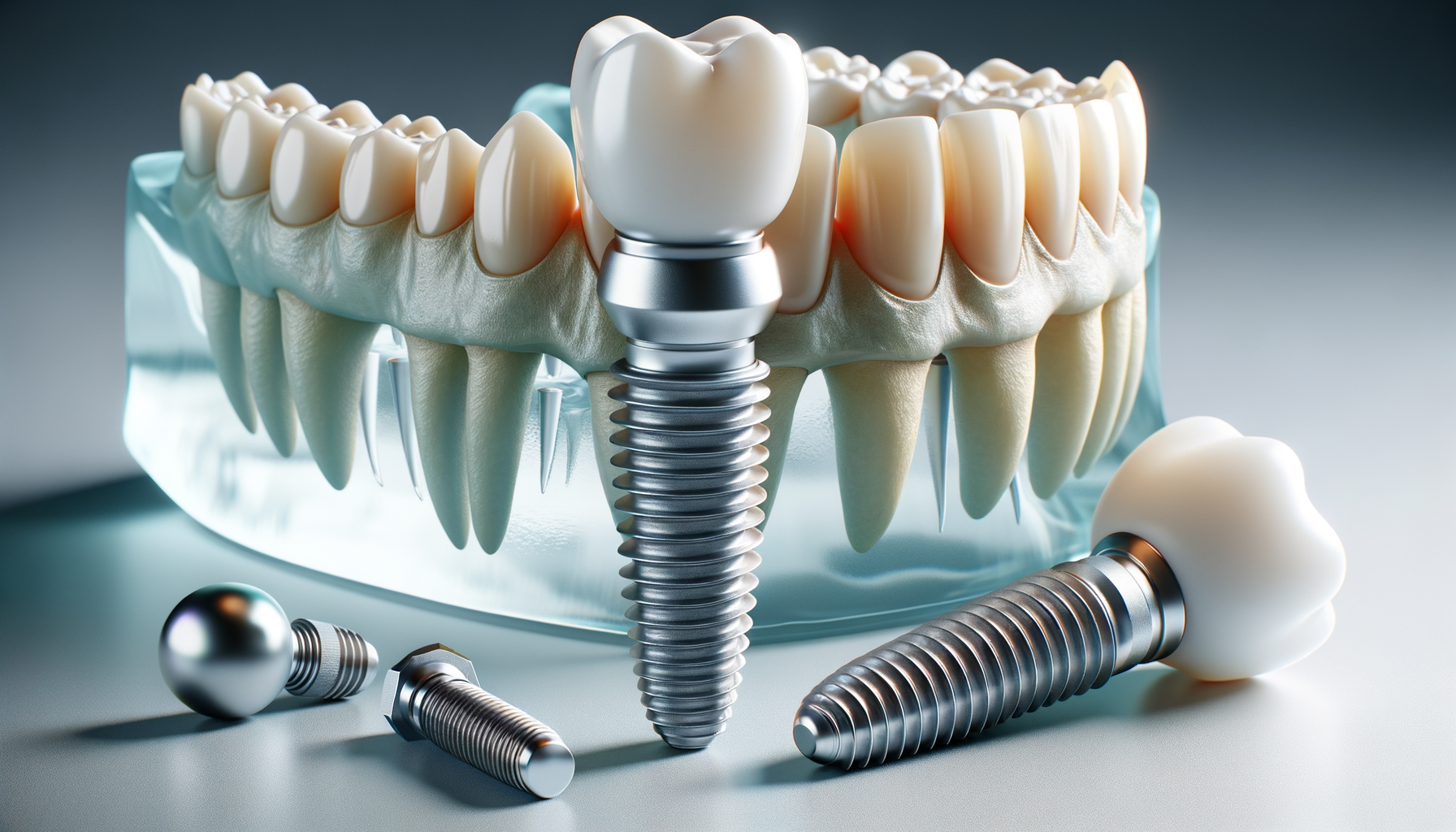Introduction to Dental Implants
Dental implants have revolutionized the way we approach tooth replacement. Unlike traditional dentures or bridges, dental implants offer a permanent solution that mimics the function and appearance of natural teeth. This advancement in dental technology is not just about aesthetics; it’s about restoring function and improving overall oral health. As more people seek durable and reliable solutions for missing teeth, understanding the intricacies of dental implants becomes essential.
In this article, we’ll delve into the multifaceted world of dental implants, exploring their benefits, the procedure involved, and why they might be the right choice for you. Whether you’re considering implants for yourself or simply curious about the process, this guide will provide you with valuable insights.
What Are Dental Implants?
Dental implants are artificial tooth roots, typically made of titanium, that are surgically placed into the jawbone. They serve as a sturdy foundation for fixed or removable replacement teeth, designed to match your natural teeth. The concept of dental implants is not entirely new; however, advancements in materials and techniques have made them more accessible and effective.
Key components of dental implants include:
- The implant itself: A small, screw-like post that serves as the root of the new tooth.
- An abutment: A connector that holds and supports a tooth or set of teeth.
- The crown: The visible part of the tooth, custom-made to fit your mouth and match your natural teeth.
This three-part structure is crucial for the stability and functionality of the implant, ensuring a seamless integration with your existing dental structure.
Benefits of Dental Implants
Dental implants offer numerous advantages over other tooth replacement options. Here are some of the key benefits:
- Improved Appearance: Dental implants look and feel like your own teeth. They are designed to fuse with bone, making them a permanent part of your mouth.
- Enhanced Comfort: Because they become part of you, implants eliminate the discomfort of removable dentures.
- Better Oral Health: Unlike tooth-supported bridges, dental implants don’t require reducing other teeth. This means more of your own teeth are left intact, improving long-term oral health.
- Durability: Implants are highly durable and can last many years. With good care, many implants last a lifetime.
- Convenience: Removable dentures are just that; removable. Dental implants eliminate the inconvenience of removing dentures, as well as the need for messy adhesives to keep them in place.
These benefits make dental implants a preferred choice for many seeking a reliable and aesthetically pleasing solution for missing teeth.
The Dental Implant Procedure
The process of getting dental implants involves several steps and can take several months to complete. It begins with a comprehensive dental exam, including X-rays and 3D images, to assess the condition of the jawbone and plan the procedure.
The procedure typically involves the following stages:
- Initial Consultation: Discuss your needs and expectations with your dentist, who will evaluate your oral health and determine if you’re a suitable candidate for implants.
- Surgical Placement: The implant is surgically placed into the jawbone. This is usually done under local anesthesia and may require a few months for the bone to grow around the implant and secure it.
- Abutment Placement: Once the implant is securely integrated, an abutment is placed to connect the implant to the crown.
- Crown Placement: A custom-made crown is attached to the abutment, completing the process and restoring the function and appearance of your teeth.
While the process may seem lengthy, each step is crucial for ensuring the success and longevity of the implant.
Are Dental Implants Right for You?
Deciding whether dental implants are the right choice involves considering several factors. Ideal candidates are those with healthy gums and sufficient bone to hold the implant. Good oral hygiene and regular dental visits are also essential for the long-term success of dental implants.
However, some conditions may require additional treatment before implants can be placed, such as:
- Bone Grafting: If your jawbone isn’t thick enough or is too soft, you may need bone grafting to create a more solid base for the implant.
- Sinus Augmentation: If the implants are to be placed in the upper jaw, sinus augmentation might be necessary to raise the sinus floor and develop bone for implant placement.
- Ridge Expansion: If your jaw isn’t wide enough to support implants, ridge expansion can widen the jaw.
Consulting with a dental professional will provide a clearer understanding of your specific needs and the best course of action. With the right care and consideration, dental implants can offer a lasting solution for enhancing your smile and oral health.
Conclusion: Embracing the Future of Dental Care
Dental implants represent a significant advancement in dental care, offering a reliable and long-lasting solution for those seeking to restore their smile and oral function. As technology continues to evolve, the process becomes more streamlined, making implants an increasingly accessible option for many.
Whether you’re dealing with a single missing tooth or require a complete set of replacements, dental implants provide a versatile and effective choice. By understanding the procedure, benefits, and considerations involved, you can make an informed decision that aligns with your dental health goals.
As always, consulting with a qualified dental professional will ensure you receive personalized advice and care tailored to your unique situation. Embrace the possibilities of dental implants and take the first step towards a healthier, more confident smile.




Leave a Reply